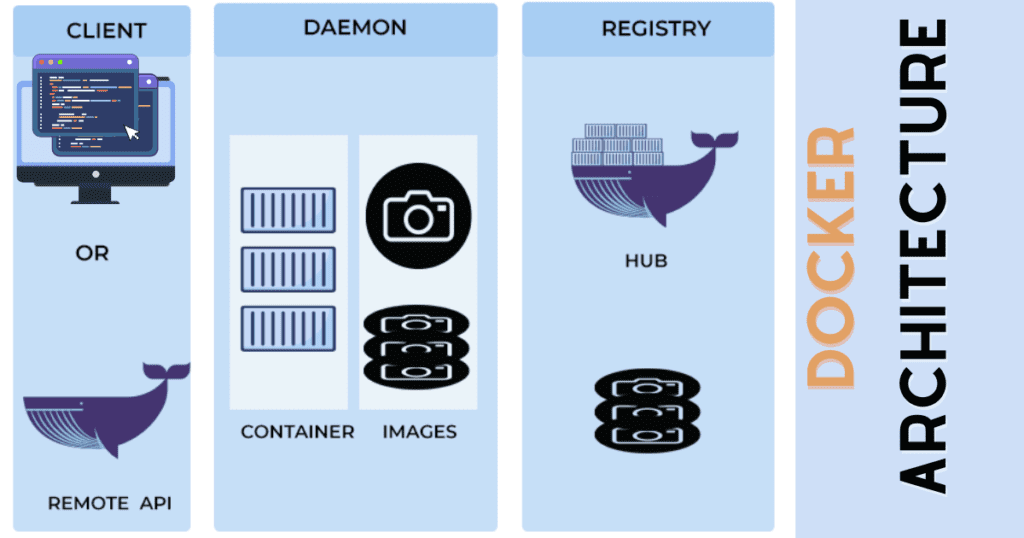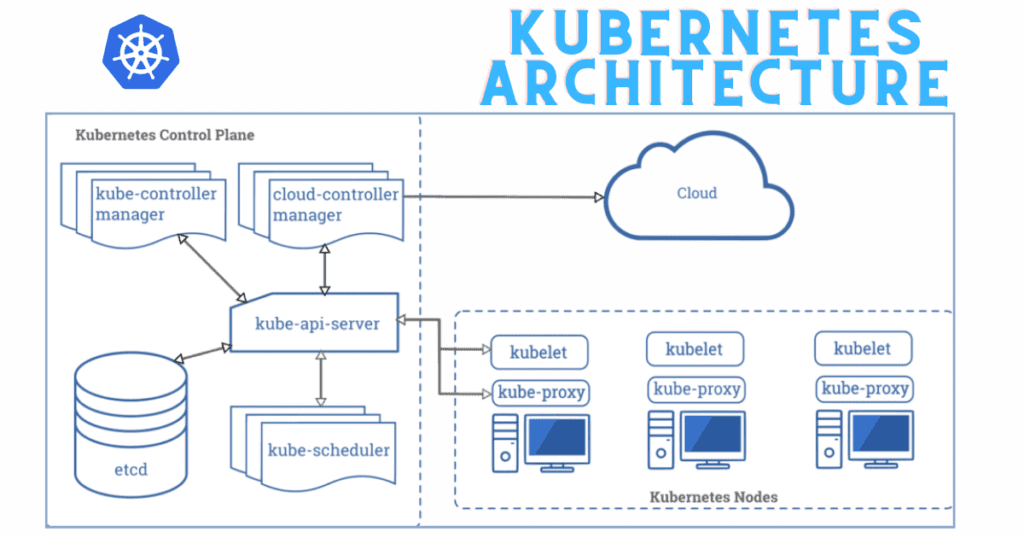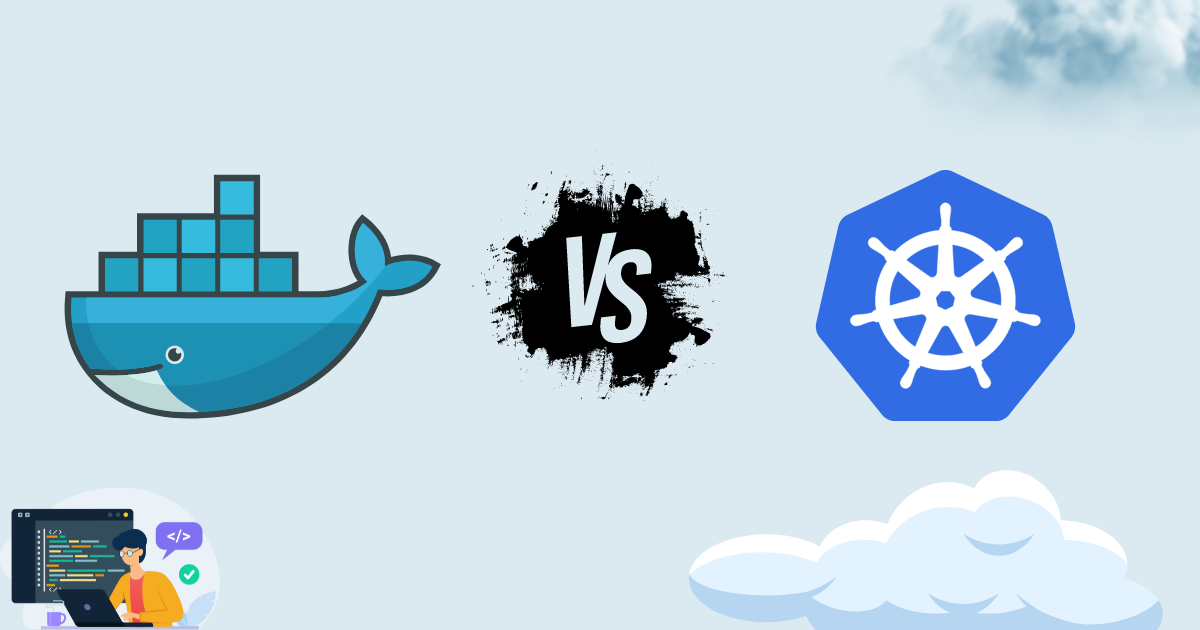How do Kubernetes and Docker differ from each other?
Kubernetes vs Docker: Which one is the right choice for your containerization needs? Kubernetes and Docker serve distinct yet complementary purposes in the realm of containerization. Docker serves as a platform empowering developers to create and deploy containers, encapsulating applications and their dependencies. On the other hand, Kubernetes is a container orchestration tool that streamlines the deployment, scaling, and management of containerized applications. While Docker facilitates the creation of containers, Kubernetes focuses on their efficient orchestration, ensuring seamless deployment, scaling, and maintenance. In essence, Docker is a containerization platform, while Kubernetes is a powerful orchestration solution that enhances the management and scalability of containerized applications in complex, dynamic environments.
Docker: A Compact Cargo Ship
Our journey commences with Docker, a compact yet powerful cargo ship designed to carry your containers across the turbulent seas of software deployment. Beyond a mere buzzword, Docker is a comprehensive platform that encapsulates applications and their dependencies into portable entities known as containers. At the heart of this vessel is the Docker engine, a robust and lightweight environment facilitating the seamless navigation of these containers.
Docker’s allure lies in its simplicity. The creation, deployment, and operation of applications become a streamlined process, thanks to Docker images – encapsulated snapshots of applications and their dependencies. These images can be effortlessly shared, ensuring that the consistency witnessed on a local development machine is faithfully replicated in production environments.

Advantages of Docker
Several compelling advantages substantiate the decision to set sail with Docker:
Lightweight: Docker containers, by design, share the host OS kernel, resulting in a lean and resource-efficient deployment.
Consistency: The specter of “it works on my machine” is exorcised with Docker, as containers guarantee consistency across various stages of development, testing, and production.
Rapid Deployment: Docker’s containers can be conjured into existence or dismissed in a matter of seconds, fostering agile development practices and facilitating swift scaling.
Use Cases for Docker
Docker finds its anchorage in diverse scenarios, proving its worth in the following domains:
Development Environments: Docker provides a standardized environment, mitigating the notorious “it works on my machine” problem.
CI/CD Pipelines: Seamlessly integrating with continuous integration pipelines, Docker ensures predictable and smooth deployments.
Microservices Architecture: At the epicenter of microservices, Docker facilitates modular and scalable application development.
As we conclude our exploration of Docker’s seas, let’s set our sails towards the archipelago of Kubernetes, where container orchestration takes center stage.
Kubernetes: The Archipelago of Orchestration

If Docker is a cargo ship, then Kubernetes is the archipelago orchestrating an entire fleet of ships. Kubernetes, often abbreviated as K8s, elevates containerization by offering robust orchestration capabilities. It automates the deployment, scaling, and management of containerized applications, making it an indispensable tool for large-scale and complex projects.
Advantages of Kubernetes
The allure of Kubernetes lies in a multitude of advantages, including:
Scalability: Kubernetes masters the orchestration of containers at scale, effortlessly managing clusters comprising thousands of nodes.
Automated Load Balancing: Traffic is intelligently distributed across containers, ensuring optimal performance and resource utilization.
Self-Healing: Kubernetes possesses an innate ability to detect and replace failed containers, guaranteeing high availability and reliability.
Use Cases for Kubernetes
Kubernetes stands as the go-to solution in specific scenarios, including:
Orchestration at Scale: When your application outgrows the capabilities of a single host, Kubernetes expertly orchestrates containers across a sprawling cluster of machines.
High Availability Applications: For critical applications demanding minimal downtime, Kubernetes’ self-healing capabilities ensure uninterrupted service.
Multi-Cloud Deployment: Kubernetes grants the freedom to deploy applications seamlessly across multiple cloud providers, fostering flexibility and averting vendor lock-in.
Features and Functionalities: Kubernetes vs Docker
Now that we’ve visited both Docker and Kubernetes islands let’s delve even deeper into a comparative analysis of their features and functionalities, unraveling the intricacies that can significantly impact your choice in the vast sea of container orchestration.
Container Orchestration
Docker’s orchestration capabilities primarily reside in Docker Swarm, a native clustering and scheduling tool. Docker Swarm offers simplicity, making it an excellent choice for smaller projects or those seeking straightforward deployment solutions. It facilitates the management of a cluster of Docker hosts, providing features like service discovery, load balancing, and rolling updates. While Docker Swarm is user-friendly and integrates seamlessly with Docker, it may need some of the advanced features found in Kubernetes.
On the other side of the spectrum, Kubernetes emerges as the heavyweight champion of container orchestration. Kubernetes provides a comprehensive and extensible platform for containerized applications, handling complexities associated with large-scale deployments. Its architecture comprises a master node controlling multiple worker nodes, with components like Pods, Services, and Deployments ensuring efficient management, scaling, and orchestration. Kubernetes is the go-to choice for enterprises and projects demanding high levels of automation, resilience, and flexibility.
Scalability
Docker Swarm, although capable of handling scaling operations, might be perceived as more suitable for smaller and less intricate deployments. Its straightforward approach to scaling involves adding or removing nodes to or from the Swarm, making it less intricate but potentially less automated compared to Kubernetes.
Kubernetes, designed for orchestration at scale, excels in managing large clusters with thousands of nodes. Its ability to scale horizontally and distribute workloads efficiently positions it as the preferred choice for projects anticipating significant growth. Kubernetes employs a robust system of controllers, ensuring that the desired state of your application is maintained even as the scale fluctuates.
Service Discovery
Service discovery is a crucial aspect of container orchestration, ensuring that components within a system can seamlessly communicate with each other. In Docker, service discovery can be achieved through manual configuration or external tools. While this provides flexibility, it might require additional effort and tooling to set up and maintain.
Kubernetes, on the other hand, offers built-in service discovery mechanisms. Through its Services abstraction, Kubernetes automatically manages the discovery of services and their associated endpoints, simplifying communication within complex application architectures. This inherent capability reduces the burden on developers and operators, enhancing the overall efficiency of the orchestration process.
Networking
Networking plays a pivotal role in the performance and security of containerized applications. Docker introduces a networking model that, while suitable for simpler applications, might lack some of the advanced features found in Kubernetes. Docker uses bridge networking by default, isolating containers on the same host, and provides options for overlay and macVlan networks for more complex setups.
Kubernetes, with its Container Network Interface (CNI), offers a highly flexible and extensible networking model. It allows for the integration of various third-party networking plugins, facilitating the implementation of advanced networking features such as network policies, load balancing, and service meshes. This level of networking sophistication makes Kubernetes the preferred choice for projects with intricate networking requirements.
Ease of Use
One of Docker’s standout features is its simplicity and ease of use. Docker’s user-friendly interface and intuitive commands make it accessible to developers and operators with varying levels of expertise. Docker’s straightforward approach is particularly advantageous for smaller teams or projects where a quick learning curve is essential.
Kubernetes, while undeniably powerful, presents a steeper learning curve. Its extensive feature set and complex architecture require a deeper understanding to harness its full potential. However, the investment in learning Kubernetes pays off for large and complex projects, where the need for advanced orchestration capabilities outweighs the initial learning curve.
In this comparative voyage, the choice between Docker and Kubernetes (Kubernetes vs Docker) hinges on factors such as project size, complexity, and the specific requirements of your application architecture. Docker excels in simplicity and is an excellent choice for smaller projects or those with straightforward deployment needs. Kubernetes, with its advanced orchestration features, is the natural selection for large-scale applications demanding high levels of automation, scalability, and resilience.
Factors to Consider:
Project Size and Complexity: Docker may suffice for smaller projects, whereas Kubernetes emerges as the superior choice for larger and more complex applications.
Team Skillset: The expertise of your team plays a pivotal role. Docker’s simplicity may be advantageous for teams with varying skill levels, while Kubernetes demands a more specialized understanding.
Future Scalability Requirements: Anticipating the trajectory of your project, if significant growth is on the horizon, Kubernetes may be the wiser investment.
Real-World Use Cases:
Docker: Ideally suited for smaller projects, development environments, and integration into CI/CD pipelines.
Kubernetes: The preferred choice for large-scale applications, those with high availability requirements, and deployments across multiple cloud providers.
Conclusion
In the labyrinth of containerization, both Docker and Kubernetes stand as formidable pillars, each with its unique strengths and offerings. Docker, with its simplicity and efficiency, proves to be an excellent choice for smaller projects and streamlined development environments. Conversely, Kubernetes emerges as the orchestrator of choice for large-scale applications demanding high availability and intricate orchestration.
As you embark on your containerization journey, let the specific needs of your project serve as your compass. Consider the expertise of your team, the scalability requirements, and the intricacies of your application architecture. Whether you choose Docker or Kubernetes, rest assured that these tools will be the wind in your sails, propelling your ship through the complex waters of modern software development.
FAQs
- What is the primary difference between Kubernetes and Docker?
- Answer: Docker is a containerization platform that allows applications to be packaged into containers, while Kubernetes is a container orchestration system designed to manage and scale containerized applications.
- Do I need both Kubernetes and Docker for containerized applications?
- Answer: Docker provides the tools to create and run containers, while Kubernetes orchestrates and manages these containers in a clustered environment. Depending on your needs, you might use Docker alone for smaller projects, but Kubernetes becomes valuable for larger, more complex deployments.
- Can I use Kubernetes without Docker?
- Answer: Yes, Kubernetes is container-agnostic and supports multiple container runtimes. While Docker is a popular choice, Kubernetes can integrate with other container runtimes, providing flexibility in your containerization strategy.
- Which is more suitable for a small development project, Kubernetes, or Docker?
- Answer: For smaller projects, Docker alone might suffice. It simplifies the containerization process, making it easy to build, deploy, and run applications. Kubernetes, with its advanced orchestration features, becomes more beneficial as projects grow in size and complexity.
- Is there a learning curve associated with Kubernetes and Docker?
- Answer: Docker is known for its simplicity, offering an easy learning curve for developers and operators. On the other hand, Kubernetes requires a more significant learning curve due to its extensive array of features and advanced capabilities. Orchestration capabilities. The choice depends on the project’s scale and the team’s expertise.
